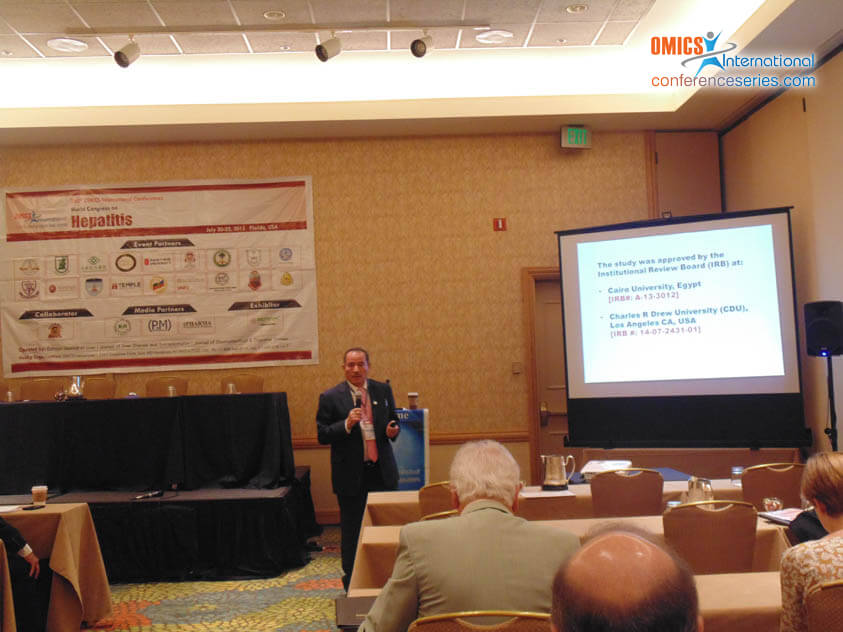
Dr. Mamdooh Ghoneum
Charles Drew University of Medicine and Science, USA
Title: Effect of arabinoxylan rice bran (Biobran) on viremia level in patients with chronic HCV infection
Biography
Biography: Dr. Mamdooh Ghoneum
Abstract
Hepatitis C virus (HCV) has infected approximately 12 million people in Egypt with 40,000 deaths/year. Current treatments for HCV using synthetic antivirals have severe side-effects. Therefore, there is a need to explore the therapeutic applications of natural products. We examined the anti-HCV effect of Biobran, an arabinoxylan from rice bran, on viremia in patients with chronic HCV. Patients with positive HCV (N=39) were randomized into two groups. One group served as a control, receiving standard treatment of PEG Interferon plus Ribavirin (N=22), and the second group was treated with Biobran (1 g/day) (N=17). The level of viral load was examined before and 3-months after treatment. The group treated with Biobran and the group treated with Interferon both showed a significant reduction in the viral load after 3 months of treatment relative to the baseline viral load (p<0.05). The reductions in the viral load of the two groups were comparable (p>0.05). However, the Biobran group demonstrated no side effects and patients reported good health, while among the control group there was fever, anaemia and thrombocytopenia, and the patients reported easy fatigue. We conclude that Biobran is a novel therapeutic regimen that is safe and effective in the treatment of chronic HCV. The mechanisms by which Biobran exerts its effect may involve activation of human immune cells that are known to exhibit antiviral activity. Ongoing studies are designed to examine the long-term effect of Biobran on the treatment and the recurrence of HCV in multiple clinical trials.



